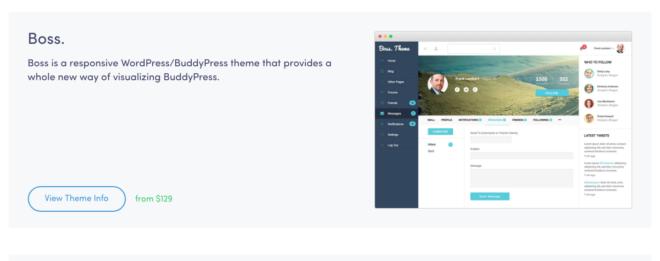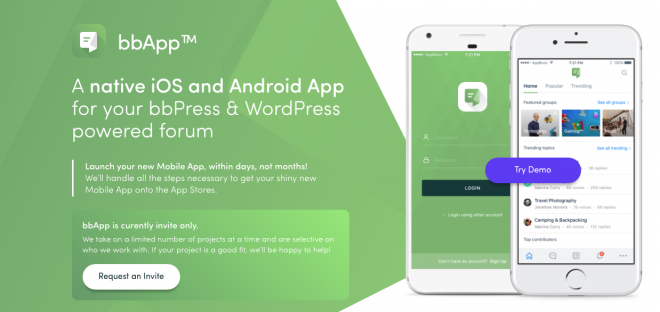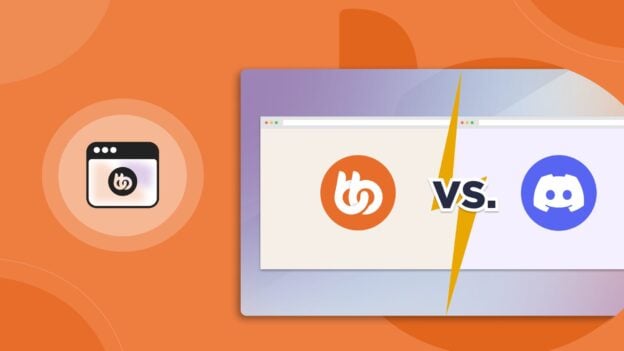Paid-membership Facebook groups initially seem like an attractive proposition for people who want to build an income-generating community.
Your existing or potential members are probably already on it;
They know how to use it;
And they’ll get push notifications to their mobile devices throughout the day, ostensibly keeping them engaged with your content.
Plus, it’s free for you to set up. If you’re just starting out, this might be a completely reasonable way to get your membership community off the ground and build a following.
But Facebook groups tend to reach a critical mass quickly, by which point it becomes much more strategic to find an alternative platform.
Why Rent When You Can Own?
It’s like renting a house. You don’t own the land you and your members are occupying, and that limits your ability to customize it.
You can’t “repaint and remodel” the rented house: you can’t implement themes and plugins like you can on WordPress, meaning you can’t include gamification or other eLearning tools in your group.
Facebook may not have the features you want to offer your members, and you may be missing out on attracting new members who feel there’s no reason they should pay to access the same old, familiar Facebook features they’ve been using for free.
No Remodeling

The branding, user experience, data access and even the options you have for searching members are restricted, preventing you from repurposing information for things like SEO.
Facebook doesn’t make it easy to filter users, or browse posts and content by topic categories.
In general, you don’t own any content on Facebook, and that should make any creator nervous.
Built on Shifting Sands

You and your members will always be at the mercy of Facebook’s algorithms and privacy policies.
Third-party websites featuring Facebook’s “Like” button track their activities, may indefinitely record their historical data, and users’ memberships to various groups might be required in employer-employee account disclosures – not optimal if you have a community for male fans of My Little Pony, or something.
Not that there’s anything wrong with that – it just might be outside the scope of what your member wants his boss to know about.
And Facebook can change the rules anytime. For example, there was once a time when Facebook would analyze a user’s interests and suggest groups related groups to join in the sidebar, but it seems they don’t do these automatic referrals anymore.
The Distraction Vortex

Even the main benefit of Facebook groups – push notifications – has big drawbacks indirectly.
When your members’ attention is drawn to Facebook via notifications, Facebook has a way of keeping it – just not on your content. Your members will be bouncing around Facebook looking at news feeds, other notifications from their friends and contacts, clicking on outbound links and so on.
It’s Facebook who’s making money from the time your members spend in the distraction vortex.
If members ask you questions and you have to say “go check the Facebook group,” you’re delivering them into the jaws of distraction.
In a way, you’re subtly communicating to your members that the content of your Facebook group is of equal importance and quality to the often-inane, well, BS that comprises much of people’s feeds.
Worst of all, you might also be delivering them into the jaws of competitors.
Given that Facebook’s remarketing algorithms will be showing ads to your members based on their interests, one of which is whatever your group is about, they may well be getting served up ads for similar communities that could poach them away from yours.
Alternative solutions

If you’re passionate about building a custom community and providing versatile features to serve your members, or perhaps even moving your followers from Facebook, then you’re probably aware that WordPress is by far the best platform to make that happen.
BuddyBoss has created some of the most popular eLearning and social networking themes and plugins available to help you with just that.
With our setup and development solutions, you can “own the land you build on,” with all your own branding and highly customizable, endlessly versatile features.
But what about mobile? What about push notifications?
It’s not quite good enough to have your own custom community if members can only access its full functionality from a desktop computer.
Your members or students might be able to visit the forums and engage with each other and your content a couple times a day; in the morning or at night, and for the rest of the time they go away, work, study, live their lives and you’re out of sight, out of mind.
Failing to meet your members where they spend a huge chunk of their time learning and being entertained – their mobile devices – seriously hampers your ability to keep them interested, and to keep them, period.
That means lost revenue for you when they become inactive or close their accounts.
Push notifications for your forums, then, are a critical tool in your member retention kit.

bbApp – a forum feature included with any native mobile app developed by AppBoss to integrate with your member site – fills this gap.
Your members can subscribe to different forums to see new content, comments and messages from their fellow members throughout the day via push notifications, and remain engaged in your community.
If you’re going to work hard to create amazing courses and content, you want to maximize the chances your members will see it, engage with it and enjoy it.
That’s good for your bottom line.












